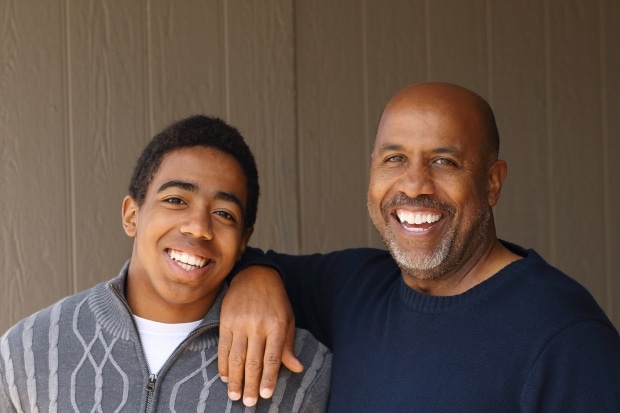In Great Britain, you have the opportunity to make a will stating who will inherit your assets when you die. However, when you die without leaving any will, or if the will isn’t legally valid, you’re said to have died “intestate”.
The intestacy rules greatly restrict who can inherit your estate. This creates potential problems for blended families.
There’s an increase in the number of different family types especially the number of blended families. It’s important for blended family members to know where they stand when it comes to inheritance and understand the importance of a valid will.
Is My Will Valid?
For a will to be valid, it must meet the following criteria:
- The person making the will must be 18 years old or older;
- The will must have been made voluntarily and without pressure;
- The person making the will must be of sound mind;
- The will must be in writing and signed by the person making the will in the presence of two witnesses; and
- The will must be signed by the two witnesses in the presence of the person making the will.
Intestacy Rules ~ When there’s no Valid Will
Where a person dies without making a valid will, the assets are distributed according to the intestacy rules. These rules specify the following order of priority for relatives to inherit:
- Spouse or civil partner
- Children/grandchildren
- Parents
- Brothers and sisters
- Grandparents
- Uncles and aunts
If you’re married or in a civil partnership, your surviving spouse or civil partner will inherit all of your personal possessions and the first £250,000 of the estate. They will also inherit half of any excess above £250,000 in the value of the estate.
The remainder of the estate will then pass to any biological children, or grandchildren if your children didn’t survive you. If you’re not married or in a civil partnership, your biological children will inherit the whole estate.
It’s therefore crucial for stepchildren to be included in a valid will if you wish for them to benefit from your estate.
You would therefore need to specify you’re referring to a stepchild in order for them to benefit.
Where a person dies intestate without descendants, their estate will pass to their living blood relatives. If no relatives can be identified, the property will revert to the Crown.
Can a Claim be Brought by Stepchildren if you Die Intestate?
Where the distribution as a result of the intestacy rules doesn’t adequately provide for certain people, the courts have the power to override the outcome under the Inheritance (Provision for Family and Dependents) Act 1975.
A claim could therefore potentially be brought by stepchildren on this basis. However, it’s important to note the outcome of such a claim is extremely unpredictable. Even if an award is made, it could be for an amount far lower than you would like them to receive.
The amount they receive would depend on various factors, such as an analysis of their needs and the level of dependency, and this can lead to very unpredictable outcomes. In addition, an application must be made within six months of the grant of probate or letters of administration, so this option shouldn’t be heavily relied upon.
It’s therefore crucial a valid will is made to make sure all arrangements are agreed in advance.
Drafting the Will
If you’re concerned your new partner may not make provision for your children, i.e. your partner’s stepchildren, there are ways around this. It’s possible to specify in the will the estate should be placed into a trust.
This enables your partner to benefit from your estate while they’re alive, through income and a right to live in the matrimonial home. It make sures the estate would then pass to your children when your partner dies.
According to a YouGov survey conducted in 2015, nearly two thirds of the British population don’t have a will. While the intestacy rules aim to reflect the deceased’s most likely preference for asset distribution, this does not accurately provide for all circumstances and therefore creating a valid will is very important.
It’s even more important for households with complex family structures, like stepfamilies, where there’s the potential for distribution to miss out somebody who would otherwise have benefited.
Although there’s the option for stepchildren to bring a claim, the success of these claims is so varied they should not be relied upon in place of a valid will. Also, wills must be carefully drafted to make sure those you wish to benefit from your estate are clearly defined.






